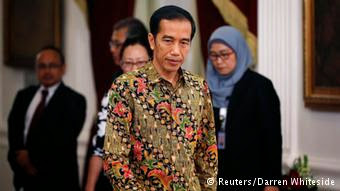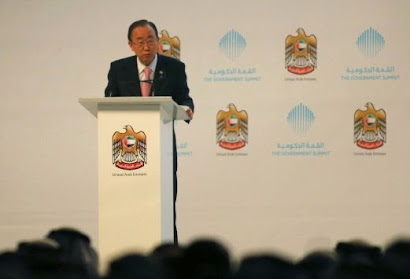Marunda beach in Cilincing, North Jakarta, is still a weekend haven for many local tourists, despite its poor condition.
Many come to the beach to enjoy sailing and swimming in the Java Sea.
Aisyah and 25 of her relatives visited the beach Sunday morning. They rented a truck to travel from Bekasi to the beach.

PACKED: Large families prefer to spend holidays on the beach because it is free.
"We just want to have fun here. The beach is quite close to our homes. It was about a 30-minute drive to get here," said Aisyah, whose entourage was made up of mostly children under 12.
She only spent Rp 120,000 (US$13.79) to rent the truck and paid no entrance fees.
"We bring a packed lunch for a picnic, so we don't spend any money on food either," she added.
Aisyah and the children spent their time sailing, hanging out on the seashore and swimming.
"The beach is not beautiful and doesn't have many facilities, but we are having quite a good time here. The children can swim as long as they want," she said.
Aisyah's 12-year-old niece, Lia, enjoyed her time swimming in the Java Sea, despite the dirty seawater.
"The seawater is dirty. I also hurt my feet on stones and oyster shells. But that's OK. It's still fun because I can swim and gather shells with my relatives," said Lia.
For those who cannot swim, visitors can rent floating tires for Rp 3,000 for children and Rp 5,000 for adults.
Aisyah preferred to stay dry.
"I'm reluctant to go in the dirty beach. Ten years ago the water was cleaner. There was no garbage scattered around. Now it looks so dirty and there's garbage everywhere," she said.
"To be honest, if I had more money, I'd go to Ancol instead of Marunda because it's cleaner and it offers better facilities," she said.
Isan, another visitor, even forbade her six-year-old son from swimming in the dirty seawater.
"He wanted to go swimming but I didn't let him. Look, the water is not clear and it can be harmful to children. I don't want him to get a rash," said Isan.
Most of the tourists had driven from outside the city to visit the beach, despite its dirty water and poor surrounding roads.
For years, Jakarta has experienced a range of issues across its coastline, including floods, tidal waves and pollution.
Jakarta's coastal area has rapidly deteriorated in the last few years.
According to the Indonesian Forum for the Environment, six of the nine estuaries in Jakarta are heavily polluted and there are just 120 hectares of mangrove thickets left of the 1,300 hectares that existed in the 1960s.
Tourists still visit the beach, mostly because it is free, but have a hard time getting there.
If you use public transport from Cilincing, also in North Jakarta, you still have to walk one kilometer to get to the beach.
If you go by car, you can park in the lot 800 meters from the beach because the road heading to the beach is to narrow for cars.
A motorcycle may be the best bet because you can use the narrow road, although it has many potholes. You can park your vehicle in the parking area near the tourism site for Rp 2,000.
Although the beach has its negatives, a good clean up could help it realize its potential.
Existing food facilities are a little better. Tourists can enjoy seafood and other meals from food stalls run by surrounding residents.
Muslims visitors can pray at the 348-year-old Al Alam mosque near the beach, where many residents believe Pitung, a Betawi hero during the Dutch colonial era, used to pray.
Besides enjoying the panorama, some tourists visit the beach to go fishing. Asep, a Bekasi resident, usually goes fishing on Sundays.
"I like fishing and often doing it in Marunda. It's free. I usually come here in the morning and go home in the afternoon," he said on a trip with his cousin.
"I can catch about a kilogram or between 15 to 20 cichlid fish. My family and I usually eat them," he said.
Although he enjoys fishing in the area, Asep hopes the North Jakarta administration will provide better fishing areas at the beach.
"I heard the administration is going to convert the beach into a recreational area. If they do that, maybe I will bring my wife and kids here," he said, referring to the administration's plan to develop the beach into one like Ancol.
Aisyah shares Asep's opinion.
"I hope the administration will soon repair the roads heading to the beach, clean the area and provide a playground facility for children. After they finish the development, I hope it will still be free," she said.(trw)







